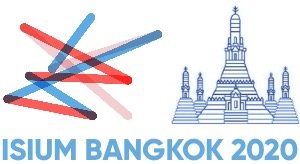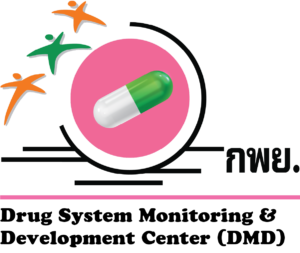
People Improving the Use of Medicines: What We Know & Don’t Know
Purpose & objectives
The purpose of the meeting is to reinvigorate the movement for rational use of medicines by sharing new knowledge and experiences on how to improve medicines use and to agree on a plan for future ISIUM work. The objectives are:
- To understand rational use of medicines and therapeutic practices in terms of new knowledge and perspectives.
- To share experiences in peoples’ education and empowerment in improving the use of medicines and therapeutic practices.
- To explore what governments and other stakeholders should and could do to ensure the safe and effective use of medicines, and how they may be held to account.
- To define priority areas for future ISIUM work on improving the use of medicines and its promotion, with a focus on people’s empowerment.
The meeting will be held in partnership with the Drug System Monitoring and Development Centre (DMDC), Chulalongkorn University, and the Thai RDU Subcommittee of the Thai Food and Drugs Administration (FDA).
The themes of the meeting
The impact of poor use of medicines on society, health and well-being are serious and lasting for individuals and their families, for communities, for countries and for refugees caught between countries or communities.
Vested commercial interests are closely involved in every aspect of the medicines supply chain and these interests have a considerable and sometimes inappropriate influence on critical decisions such as defining the criteria for diseases, developing research agendas, funding continuing education for health professionals.
We believe there needs to be better decision-making regarding the use of medicines. Good choices depend on context, on underlying determinants of ill health and on independent information and reliable advice and a ‘medicines-smart’ community. We believe it is essential that we put people’s needs at the centre of our efforts to define the place of medicines in society, to provide equitable access to medicines and to ensure they are used properly.
We have a big bold vision … “We want to build a better world where everyone has access to the medicines they need, and where medicines – if they are the best treatment option – are used wisely and safely.”
We want to bring people together to share their experiences and showcase their work. We want to explore key issues particularly from the community perspective, such as: What is Health? What is Medicine? How aware are communities and health professionals of the influence of vested interests, and how can they best appraise and deal with them? How do we manage the unequal knowledge between providers and consumers to ensure appropriate use of medicines? Is a two-way process between the different kinds of knowledge and experience embodied by health professionals and ‘lay’ people needed?
These are some of the questions which require objectivity, transparency and broad dialogue at community level, in the facilities of the official health system and in policy-making processes.
This meeting is the starting point to take up the new challenges in science and in the empirical experiences of communities that struggle for access to medicines as part of the right to health that belongs to every human being on the planet. We want to use this meeting to expand our network and promote tools and strategies suited to different country and community contexts.
Intertwined with this overall theme are some specific issues that the Organising Committee would like considered throughout the meeting and, possibly addressed in each working session. These are:
- Empowering people to improve the use of medicines, taking into account both community and provider, education and empowerment.
- Universal health coverage and use of medicines, including access, insurance & related issues.
- Antimicrobial medicine use, including antimicrobial resistance, stewardship & related issues.
- Government and stakeholder roles, health system infrastructure and policies, and the role of community in holding governments to account.
- Innovation, new and interesting initiatives to improve the use of medicines.
Partner organisation
This meeting is being organised in collaboration with our local Thai partner, the Drug System Monitoring and Development Centre (DMDC), which is based in the Department of Social Pharmacy at the Pharmacy Faculty, Chulalongkorn University in Bangkok. This Centre focuses on consumer protection, medicines policy, the drug monitoring system and regulation policy.

Supporting organisation
This conference is being kindly supported by:

